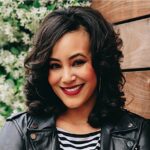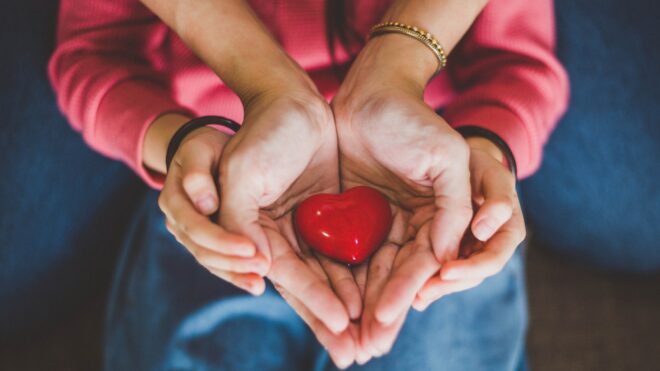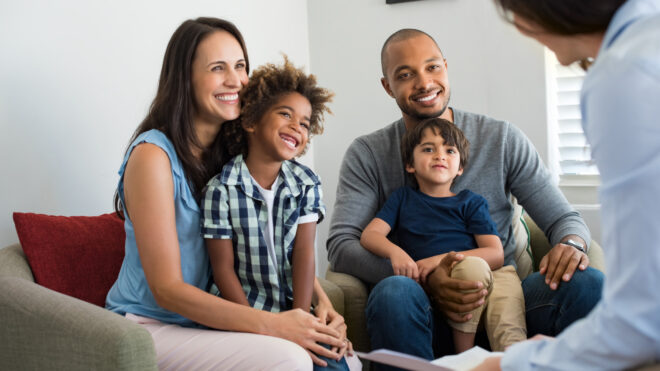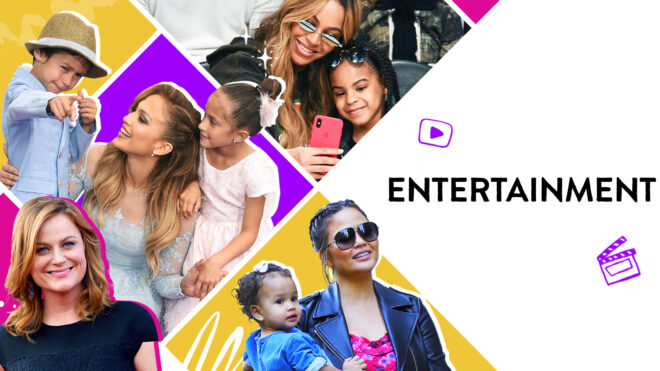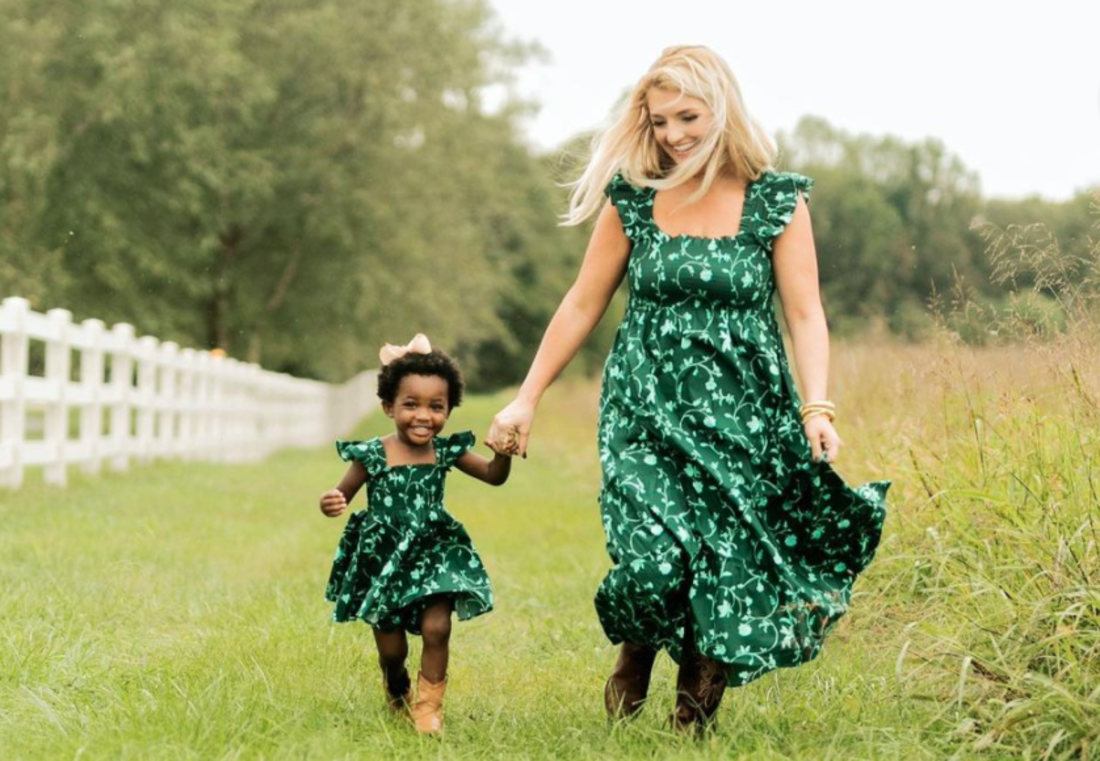
In October, Southern tastemaker Kendall Dunn posted a video on Instagram of herself doing her adopted daughter’s hair. In the text overlay on the video, Kendall, who is white, says she is always told to take her daughter Zadie, who is Black, to a salon because she won’t be able to do her hair well. But Kendall’s not trying to hear that.
Instead, Kendall discussed her determination to learn how to take care of Zadie’s hair through classes, YouTube, friends, and professionals to keep it healthy and beautiful. She wants to teach her child to be strong, confident, and love her hair, she says. And she understands self-love should start at home.
Scroll through Kendall’s feed and you’ll see more heartfelt moments like this.
Kendall, a digital brand and marketing strategist and owner/creative director of Kendall Mariah Creative Studio who goes by Kendall Mariah professionally and online, always knew she wanted to be a mother. But she wasn’t interested in carrying a child. While at a marriage counseling session six years after saying “I do,” Kendall and her husband, Justin Dunn, a captain in the US Army, were asked by their therapist how many kids they wanted. Kendall, who never had the desire to carry a child because she says “pregnancy sounded miserable,” was the first to speak up.
“I said, ‘Well, I really just think I want to adopt.’ And I looked at Justin and said, ‘If that's not OK with you, it just probably ain't going to work out.’” Justin quickly replied, “'I’m good with adoption,'” remembers Kendall. “He has half siblings, a step-sibling, an adopted sibling — family was never defined by blood for him. So, we just both looked at the counselor like, ‘Next question.’”
A few weeks after the therapy session, Kendall had an emergency surgery.
"A Nerf-sized mass that was sitting on my ovaries and my uterus" was removed, she says. During the procedure, one of her ovaries was also removed and following the surgery, Kendall was diagnosed with both endometriosis and polycystic ovary syndrome. As a result, if she did want to have a biological child, it would likely be a struggle. While pregnancy still didn’t sound ideal to Kendall, she thought: Don’t tell me I can’t. “It felt unfair as a person who had done all the right things, being a Christian girl, that it couldn't work for me. And here I was trying to live right, do the right things, be an achiever.” So, Kendall and Justin tried hard to conceive. They tracked Kendall’s ovulation schedule and she had two surgeries to remove the endometriosis. Still, she was unable to get pregnant. Eventually, she says, they decided to “take a chill pill.”
While out to dinner one night, “This cute little girl was be-bopping in the corner, and she kept catching Justin's eye,” remembers Kendall. “He just looked at me and said, ‘I think we should start the process.’ On the ride home, I looked up a couple adoption agencies.” After applying, Kendall says less than 100 days later — on December 8, 2019 — they were holding their daughter Zadie “Ann” Angelique Dunn. Zadie turns 2 years old in December. Kendall admits their journey to bring Zadie home happened “astronomically” fast. “We were an anomaly if you're into statistics, but it was a miracle if you're into God.”
Now, as the Dunns head into their third year as a family, Kendall sits down with CafeMom's editorial director Jessica Herndon to discuss adopting transracially, when she asks for help with raising her daughter, and how motherhood has changed her.
The Dunns, who live in Kentucky, had no criteria when it came to the child they wanted to adopt.
“We were open to race, gender, autism, Down syndrome, and deaf or hard of hearing,” says Kendall, adding that Justin is fluent in sign language. “Going into the process, we were aware that we, as a white, middle class, educated couple are bringing a lot of privilege. We had conversations, before we ever submitted paperwork of any kind, with our Black friends. We were like, ‘Be honest. Do you think we could do justice raising the child? Would it benefit them? I mean, outside opportunity, outside of our privilege, take all of that away, college or anything, would it be in the best interest of the child to grow up in a white family?’ And they said, ‘Well, would you be willing to move somewhere where you're the minority in the neighborhood? Would you be willing to go to a church where you're the minority, or a school, and seek those things out?’
“Of course, there's a stack of books we need to read. How are we going to handle different scenarios? What are we going to do the first time our child gets called the 'N' word? And so, we had these conversations throughout the process with them, but that initial conversation was crucial. We also needed to ask, ‘Will you promise to step up to the plate? Because we're going to need help. You're going to be doing this with us.’ There are all these intricacies that we don't have experience with. So, if her feelings get hurt about her hair, or if she gets pulled over by a cop or he gets pulled over by a cop, how do we sit down and have those conversations without them being upset at us because we can't experience it? Would you be willing to have those conversations with us?’ Some people call them guides or mentors. To us, they're just family that committed to raising a child with us.”
There was, of course, more to consider.
“There is so much that comes with adopting transracially,” says Kendall. “If you adopt inside your race, you could go months without anyone ever questioning if your child was adopted. You're never going to get it at the grocery store, you're not going to get it at a restaurant because there's nothing that contrasts it or makes you speculate anything otherwise. Anytime we're out in public, someone will ask.
"Seeing us may trigger some people because people feel like adopted children are different than biological children. If any of that bothers you, it's something to consider because you're going to be reminded of it daily. Zadie will never live a day not knowing she's different and that's just the honest-to-God truth. It's just, how do we approach it? Were we willing to make moves to educate ourselves? Were we willing to be humbled and checked by people that we love?”
The answer for the Dunns was ‘Yes!’
“The deep work was equipping ourselves to love a child that has a much different story than we do,” explains Kendall. “She's coming into a different narrative. And she may be treated differently simply because of the amount of melanin in her skin. So, how do we as parents best serve her and become equipped to raise her in a way where she's empowered and not just try to whitewash her story or try to bend her to our culture in way that makes her not feel like she can identify with who she is?”
Kendall says she and Justin were educated with case studies on adopting outside their race, they were educated on circumstances they may run into and how to approach certain questions, they took a class on natural hair care, and more.
But despite these efforts, events in 2020 were instrumental to expanding Kendall’s mindset about race and parenting.
“In the first week in May, the tapes dropped about Ahmaud Arbery being killed,” remembers Kendall. “I can't imagine being his mama and I just had this reflection of I understand. I used to be on the other side of the conversation; I could use my privilege as a shield. I could hide from these things. And I remember strolling Zadie in our neighborhood at the time crying. I had never experienced fear in that way. I had experienced at that point several microaggressions. I'd been asked, ‘Is that your baby? Did you get a discount on your baby? If you just waited longer, would you have gotten one you wanted?
“I had experienced those things, which were more along the lines of what I had expected. But it was the emotional realization that if I had a white kid, I would have never had to have these worries. My mom never had to worry about those things. I've never had to worry about my husband's safety in that way."
‘My privilege had been a shield,’ says Kendall.
“It was a rock that I could live under and I had never been forced to recognize anything differently,” she adds. “And so, the timing of the world, along with the timing of our adoption process and me being quarantined gave me a lot of this time to reflect, to research, to have conversations, to lean in, to be quiet and listen. And I don't think I ever would have experienced 2020, if it weren't had been for Zadie, the way that I did.
"But I also don't think I would be the parent that I am, the advocate that I am, if it wasn't for Ahmaud Arbery, if it weren't for George Floyd, because it just made me so crucially aware not only of all that I could turn a blind eye to, but the way that I'd been raised in North Carolina in a very hear no evil, see no evil mentality that unless it personally struck somebody, don't worry about it."
When Kendall was younger, she says she 'always locked my door when a Black man walked by my car when I was pumping gas.’
“But wouldn't do that if it was a white man in my small town,” she adds. “And it was subconscious. That's so dumb. Where did I learn that Black men are dangerous? A lot of it came from the media that I consumed in the late '90s, early 2000s with Black men in their 20s. I knew several Black men that were my coaches for sports, so it was like they were removed because they were too old. I assumed all Black males ages 18 to 25 were in a gang. And so having to rework all of that, because it wasn't things I learned from my parents.”
Via social media Kendall has spoken honestly about being judged and being bold.
“There was a lot of people that I'm close to by proximity, since I grew up in a small town that I upset, that I offended, that felt I was saying too much or I only cared about certain things now because I have a Black child,” says Kendall. “And I'm like, 'Well yeah, because I do care about them more so now because I didn't realize they were such big issues.' In 2020, for the first time ever, I voted not a straight Republican because I felt like certain people weren't using their platform, which is a privilege, as leverage for good.
“Everything has changed and that obviously affects the way that I parent and the way that we choose to navigate how we're going to approach growing our family moving forward, too.”
On the advice Kendall would you give to other parents bringing home a baby of a different race, namely a Black child.
“Get you a good girlfriend, a good Black mama friend and tell her like, ‘Hey, listen, I don't want you to feel like I'm using you, but I need your help,’” says Kendall. “Hopefully, if you're at that point in the process, you already have Black friends, you aren't going to adopt a Black baby without having some. But really, get them on speed dial.
“I have two people, plus my mom, that when I have a question, I call. That's it. Don't go out there and asking everybody for their opinion because everybody's got a different one. But find somebody you trust that you admire the way that they parent or you respect the way that they've raised their children, or even if they're not a parent yet.”
Understand that ‘you’re going to make mistakes,' adds Kendall.
“You're going to say dumb things or not realize certain things. I had a video where Zadie was a teeny baby and she just wanted to steal a grape out of a bag. It was funny because she knew she was getting away with something. I was laughing at her, and someone noticed it was filmed right in front of a watermelon stand. I didn't even realize how it could look.
“I can't raise a Black daughter well without having Black women around her. I can't pretend to be a Black woman. So, if you are chosen to raise a baby that looks different from you, just realize you're going to have to be humble and that you've committed yourself to a lifelong journey of learning and saying, ‘I don't know.’ And lean in, listen.”
For Kendall, motherhood has undoubtedly brought so much delight into her life.
“I think the joy in motherhood is wonder,” says Kendall, adding that it’s rewarding to “be able to see anything that's trash and turn it into a treasure and a toy with her or enjoy the magic of playing princesses five days a week or going on scavenger hunts outside.
“And the fact that, as an achiever, I don't have to do anything, or perform, or succeed, or get a trophy, or have a certain amount of followers, or make a certain amount of money for her to be excited for me to sit on the floor and hang out. I love having a mini best friend.”
